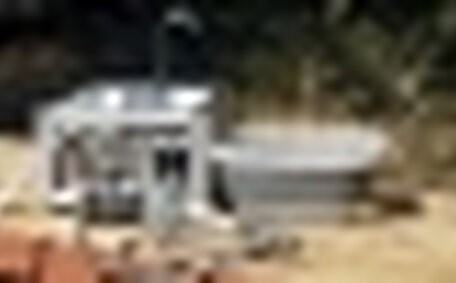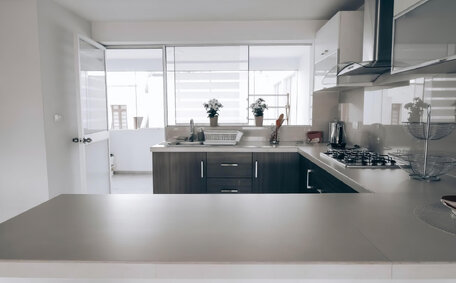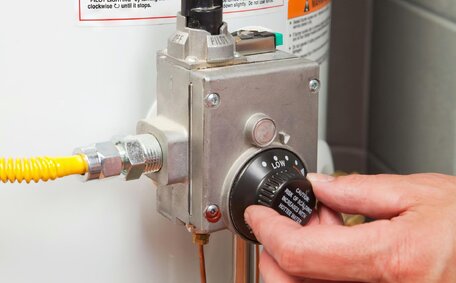What causes cloudy hot water?
Cloudy hot water, which may appear milky, is often caused by several common factors, notable in areas like Riverwood, Sydney:
Air bubbles
A primary cause for cloudy hot water is the trapped air in the water lines, leading to cloudiness. As hot water under pressure comes out through the water pipes, Air-induced cloudiness typically resolves within a few moments as air bubbles rise and dissipate.
Hot water can retain more air than cold, leading to temporary cloudiness when dispensed from taps.
Mineral deposits
In regions with hard water, mineral deposits such as calcium and magnesium can accumulate within the piping over time. As hot water traverses these calcareous layers, This can result in microscopic mineral particles giving the water a milky look. Installing water filtration systems, such as reverse osmosis or water softeners, can effectively reduce mineral buildup.
Sediment in water heater
Sediment which has been collecting at the bottom of a hot water heater tank can get agitated, the water your heater discharges may look cloudy. An annual flush of the water heater helps remove sediment, allowing for clearer water flow. Inspecting and replacing old anode rods can also help reduce corrosion and sediment.
Pipe corrosion
Water can become discoloured from metals leaching into the supply due to corroding pipes and fixtures, including heaters. Replacing deteriorated pipes and upgrading ageing hot water systems and components can help address corrosion issues.
If you find yourself asking 'why is my tap water cloudy?' and clarity doesn’t return after a few minutes, professional evaluation may be necessary. Persistent cloudiness may suggest more complex issues that warrant professional plumbing assistance. Contacting your local plumber can help diagnose and fix cloudy issues in your hot tap water.
Is cloudy hot water safe to drink?
While cloudy milky hot water is often harmless, it is prudent to ensure its safety before use for drinking or cooking. In most cases, If the cloudiness persists, or there are changes in smell, taste or health concerns, seek professional inspection before the water is used.
Cloudiness in hot water is usually temporary and often resolves after running the tap water for a short time. Nonetheless, Persistent opacity might indicate issues with the water main or internal plumbing, such as methane, dissolved gases, sediment, or contamination requiring plumbing intervention.
Areas with hard water might experience temporary cloudiness, which could also affect the water in your glass.
As a precaution, do not use cloudy hot water for drinking, cooking, or bathing until its safety has been verified by a licensed plumber. Reach out to a skilled technician like Riverwood Plumbing right away if questions like 'is there anything wrong with my water tap?' arise due to persistent hot water cloudiness, off-putting odours, or you have health considerations.
The good news is, air bubbles and hard water are not the sole reason cloudy water occurs; any other unusual culprits such as a burst pipe or bacterial proliferation also have resolutions. A qualified plumber can thoroughly inspect your plumbing, identify cloudy water causes, and ensure water safety.
Riverwood Plumbing provides proficient, economical hot water system assessments, and for transparency reasons, new comments cannot posted on this evaluation service to assure uncontaminated outcomes and your utter peace of mind. We assess whether cloudy water from your taps is safe or if it necessitates plumbing repairs to restore clarity. We use cookies to ensure you get the best experience on our website, and we would be eager to provide assistance with our licensed plumbers in Gold Coast for a comprehensive assessment of your situation to safeguard your loved ones.
Sediment buildup in the water heater
This sediment is often made up of mineral deposits from hard water, as well as iron and calcium that has corroded from your faucet, the water heater itself, and pipes over years of use.
When water is heated in the tank, the sediment can stir up, causing the water from your tap to become cloudy.
Such cloudiness usually dissipates starting from the bottom, indicating that sediment in the water heater is the likely cause.
An annual flush of your water heater is advisable to help reduce sediment buildup. This helps clear out any debris at the bottom of the tank. Replacing an old, corroded anode rod can also assist in minimising sediment by diminishing the corrosion inside the tank, ensuring particles are no longer a concern.
We can inspect your water heater and advise if tank replacement is needed due to excessive sediment or corrosion damage.
Diagnosing the cause of cloudiness
There are a few methods to help determine what’s causing cloudy hot water in your home:
Observe if it clears up
Run the hot water for a few minutes to see if it becomes clear. If the cloudiness disappears after running the water briefly, it’s usually due to tiny air bubbles, a common, harmless phenomenon. Persistent hot water cloudy issues likely indicate an issue needing repairs.
See if it clears from the bottom up
Fill a glass with water directly from the tap and observe it closely. If the water at the bottom of the glass clears first, sediment in your hot water system is the likely cause. Consider hiring a professional to flush your water heater thoroughly, which can resolve cloudy tap issues by eliminating sediment.
Check pipes and connections
Inspect pipes, pressure relief valve apparatus, and scrutinise the pressure regulation components associated with the hot water system. Corroded, damaged, or leaking plumbing can cause your lower water pressure and allow contaminants in, making water appear cloudy. Replacing deteriorated pipes may be needed.
Test water heater
Drain a sample of water from the tank’s drain valve to check for sediment. If water is rusty or sandy, sediment buildup is present. Consider flushing or replacing your old water heater if it has excessive sediment.
Contact the professionals
Reach out to Riverwood Plumbing for an in-depth evaluation of your water’s cloudiness. Our licenced technicians can employ a testing kit on your water caused, assess your plumbing, and ascertain if actions like pipe replacements are imperative to reinstate hot water translucency.
Quickly addressing the source of cloudiness can prevent health issues and maintain your plumbing’s proper function. If cloudy hot water continues after running the taps, do not hesitate to contact our team.






